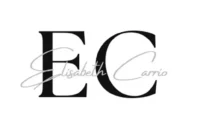Faced with the societal upheavals of recent decades, many are seeking a new direction: a paradigm based on balance and knowledge. The book Decode, Choose and… Act, written by Elisabeth Carrio, is fully in line with this quest. It offers a bold and structured reading of human behavior, articulated around an original model called 3-7-12, inspired by the functioning of the brain.
A bridge between neuroscience and humanist traditions
The founding premise of the book is as follows: understanding the brain is understanding humansThe work draws parallels between:
the three brains (reptilian, limbic, neocortex) and three types of behaviors : instinctive, humanistic, mental;
the seven fundamental values, guiding the evolution of the individual and society (power, security, conformity, etc.);
the twelve pairs of cranial nerves, brought together twelve fundamental attitudes that we can adopt when faced with a situation.
This neurological model thus becomes a existential reading grid, allowing us to decode internal and relational dynamics, identify value conflicts and clarify choices.
The 3-7-12 Model: A Method for Understanding and Acting
This model is divided into three stages:
Know your dominant mode of operation (instinctive, emotional or mental).
Identify activated values in a given situation.
Choose the most correct attitude from among the twelve possible ones, to move forward in a coherent and responsible manner.
Drawing on concepts from neuroscience, psychology, spiritual traditions and social observation, the author offers an integrative approach to deciphering the mechanisms that underlie our actions.
An approach to accountability and autonomy
The aim of the book is not only to understand each other better, but also of interact better with others and to act appropriately in the complexity of our times. Elisabeth Carrio insists on the importance of conscience as free choice faculty, inseparable from responsibility.
The reader is invited to move from instinctive reaction to conscious action, in his personal, professional and social life.



